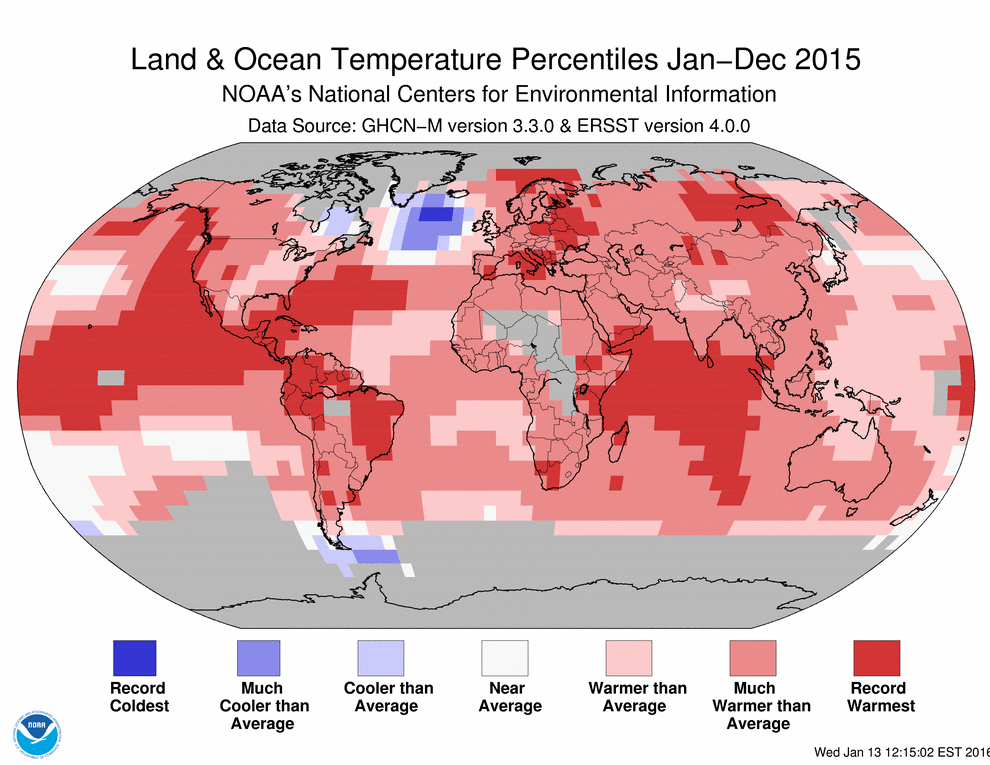The data are in, and 2015 was officially the warmest year globally ever recorded. We’ve been keeping temperature records since 1880. The last time the record was broken? 2014.
What’s interesting is just how much warmer 2015 was. The observed annual average surface temperature was more than 1.8° F (1° C) above the 19th century average, according to the National Oceanic and Atmospheric Administration (NOAA) and the National Aeronautics and Space Administration (NASA). That’s already half the warming countries have agreed to as the international limit.
And 2015 was about a quarter of a degree Fahrenheit warmer than 2014. That might seem small, but it’s actually huge when compared to the year-to-year differences observed in the record.
A strong El Niño, when the surface ocean in the Eastern Pacific basin warms, contributed to the record warmth of 2015. But even compared to other El Niño years, 2015 set records. The agencies reporting the data attribute this to the long-term warming trend due to the increase of greenhouse gases in the atmosphere.
As with all climate and weather data, the 2015 data shows some variability. Not all locations set high temperature records, and parts of the North Atlantic Ocean actually set a cold temperature record.
In the contiguous United States, 2015 was the second warmest year on record, with 2012 still holding the top spot. It was the 19th consecutive year that the annual average U.S. temperature was more than the 20th century average.
As the dataset grows, we can grow more and more confident in the long-term warming trend. Scientists expect 2016 will be a record-breaker as well. And new science is telling us that it’s not just the atmosphere heating up – the ocean is absorbing heat as well, at a faster rate and at greater ocean depths than we had previously thought.
This points to a future with more frequent and stronger climate change impacts, including heavy precipitation events (downpours and snowstorms), heat waves, and rising sea levels, unless strong action is taken to curb the greenhouse gas emissions that cause temperatures to increase. National governments have agreed to take action, but all actors – states, cities, businesses, and individuals – can play a part. As a new year begins, we will see if the world can set records for action, and not just temperature.

